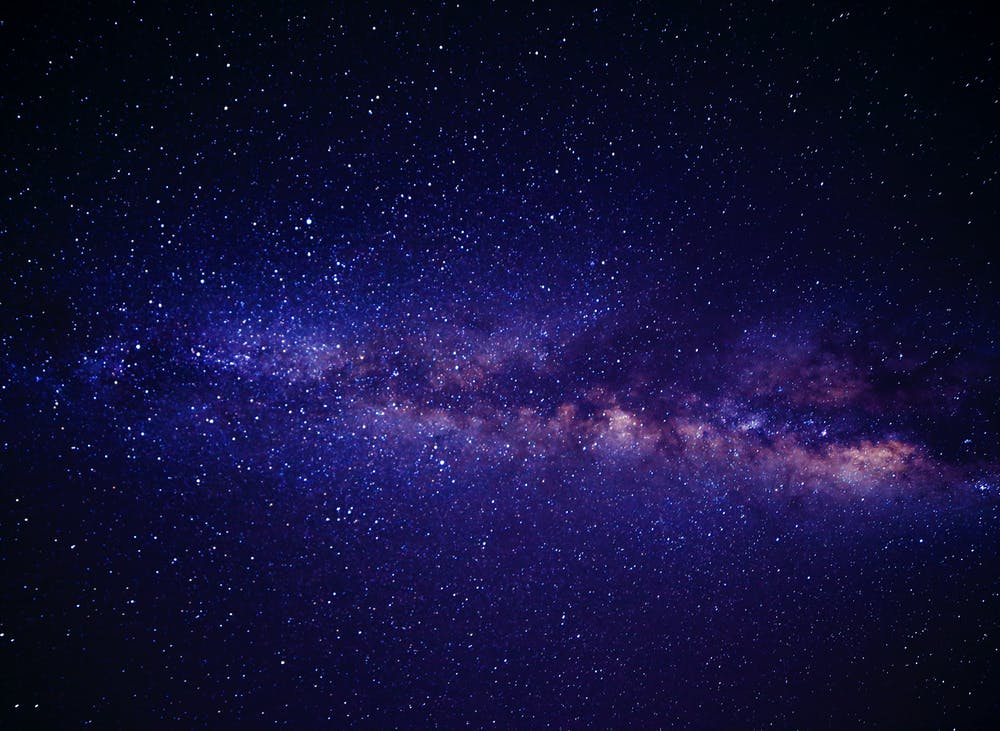
By Professor Paul Jackson and Professor Scott Lucas, School of Government
Dr Amaury Triaud, School of Physics and Astronomy
Dr Luisa Orsini, School of Biosciences
Last November, at the University of Birmingham we held a Star Wars themed event as part of the ESRC Festival of Social Science. Our academics brought to light areas of Star Wars never explored before. To celebrate May the Fourth our academics have come together once again to share their research, from what we can learn about resisting the dark side and overthrowing the Empire to how it is possible for planets to orbit more than one sun.
The Dark Side of Politics
The Star Wars franchise deals with a lot of complex issues including a hero’s journey, good versus evil, tolerance versus oppression, but one of the most fundamental elements of it is politics. At its core it is about the tension between states, empires and people.
Drawing on historical examples of the fall of the Roman Republic, the rise of Hitler from democracy to dictator and the experience of Richard Nixon in the US, George Lucas really does not like dictatorship. However, what is also clear is that democracy does not fare well in Star Wars either. When politicians appear in Star Wars they are invariably venal and self-interested, particularly when it comes to power. If Star Wars is not in favour of dictatorship, neither is it unequivocally in favour of democratic governance either.

Star Wars does have a lot to say about the nature of power, not least that power corrupts. Across all of the films a core storyline is that individuals may start out with good intentions but are tempted across to the Dark Side, even though they may do so for good intentions.
Star Wars is deeply concerned with the dangers of placing power in the hands of one person. Palpatine is handed executive powers by the senate in the face of terrorist attacks and then creates an army and wages the Clone Wars, during which he destroys the remnants of the previous Republic.
We therefore cannot trust our politicians, the public are largely absent, institutions don’t matter and the real solution is to replace bad people in power with a good people in power because democracy is dysfunctional. After all – even the resistance is led by a Princess.
Professor Paul Jackson, International Development Department
A New Hope
Last May 4th, I recorded this thought:
Star Wars was about the idea of values, that we are fighting something beyond each of us — not just survival but also decency and good against those who would blow up planets, force people into submission, and try to control entire galaxies… In the darkest time, we couldn’t let go of those values.
I was speaking then of US foreign policy, “led by an individual who, if he ever pays lip service to freedom and democracy, it’s a throw-away line. He is not guided by defending a democracy or a system — he’s there for personal gain”.
That individual and his Death Star inner circle are still in place, despite more scandals, more evidence of personal and political corruption, and an impeachment trial.
But now we also face a world of Coronavirus. We are having to cope with not only the deaths but also the inability to be with loved ones as they pass. We witness suffering and fear, and realise that tomorrow if not today it might be us. We face an uncertain future.
Yet in this unprecedented darkness, we have seen the points of light: the sacrifice and valour from frontline workers to families; the compassion from friends to strangers; the reconnection of ties long suspended; an Earth which, among pandemic, shows signs of regeneration.
 We do not have to devote our May 4th, or any other day, to the Death Star. One day it will pass, and as it does, we will take on the challenge of the world. I hold to what I said on this day one year ago:
We do not have to devote our May 4th, or any other day, to the Death Star. One day it will pass, and as it does, we will take on the challenge of the world. I hold to what I said on this day one year ago:
Obi-Wan’s dead. Doesn’t mean we give up. We hang on to our values.
We’re gonna have to find our own Obi-Wans. May the Force Be With Us.
Professor Scott Lucas, Department of Political Science and International Studies
In a Galaxy perhaps not so Far Away…
Star Wars is a universe full of diversity, a diversity of worlds and a variety of species. 25 years ago we did not know of any other worlds beyond the eight planets forming the Solar system. Some suspected there existed planets elsewhere, but it was far from certain. Now, we know there are more planets in the Universe than there are stars. Some of the planets we discover look like those in our Solar system, but by and large most planets and most systems appear different, they are more varied and diverse than what we ever had imagined.

The world of Tatooine in Star Wars is a circumbinary planet. A planet that has two stars at the centre of the system instead of just one, with the planet orbiting in a circle about both, while in the middle both stars orbit one another. Those were thought highly implausible until we found out circumbinary planets exist just as regularly as planets orbiting single stars, like our Sun is.
This is an occasion where science went beyond fiction and discovered unexpected worlds even by Star Wars’ standard, such as planets that are hotter than stars, planets covered in a magma ocean, others with diamond centres and one with a ring system as wide as the distance between our Earth and our Sun.
Humans have always looked up at the sky, and have organised our societies around what we saw and thought we understood about the heavens. Absolute monarchs around which everyone revolved appeared in Europe soon after we realised the Sun occupied the centre of our system. Since, we have learned about Einstein’s relativity, which has now become an integral part of our legal system with the inclusion of concepts like limited responsibility and attenuating circumstances. Now that we know planets are so diverse, I hope they become an inspiration for all of us to be more inclusive of others, to witness the harmonious diversity of the cosmos and create it on Earth.
Dr Amaury Triaud, School of Physics and Astronomy
Well if Han Solo Survived…
A year ago I told the story of the waterflea Daphnia, a small crustacean that can be frozen in time for centuries, a unique trait that makes them survive harsh environmental conditions. In this past year, we have been making amazing discoveries in fundamental science, as well as bringing sustainable biotechnologies to the ones in need.
A lake with dormant Daphnia was used as a natural experimental evolution laboratory to discover the genomics and epigenomics changes, as well as plastic responses that enable organisms to persist in the face of human-driven environmental change. We are slowly unravelling the molecular elements that enable evolution through time.
We discovered that the historical library of Daphnia variants from biological deposits have greater decontamination abilities than their modern descendants and studied the molecular machinery that makes them efficient decontaminant agents. These historical variants are the foundation for an evolving wastewater management system that can be tailored to contaminated water sources. We are working to deliver this sustainable, green and renewable water decontamination platform to developing countries, where water reuse is an urgent necessity.
Dr Luisa Orsini, School of Biosciences
Watch the full Birmingham Strikes Back Facebook livestream here.
